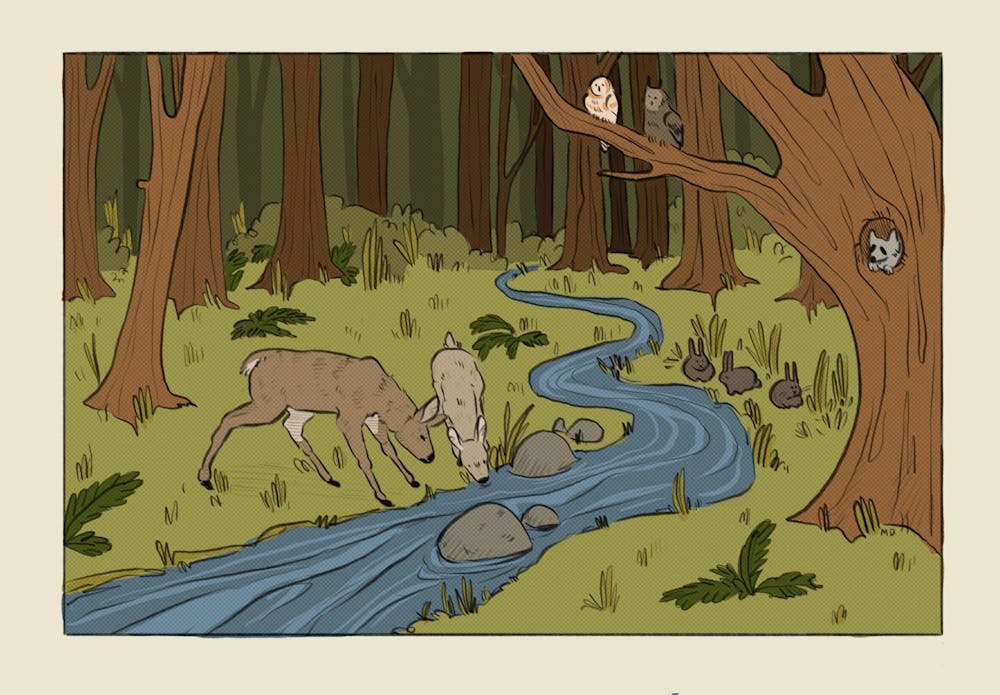Construction has been in progress on Western Washington University’s Kaiser Borsari Hall since March 2023. The new building is located by south campus behind the Communications Facility, right next to the Sehome Hill Arboretum.
The Sehome Hill Arboretum is a 175.5-acre park, full of many native plants and wildlife. Due to the proximity to the Arboretum, wildlife has been impacted by the construction in many ways.
“There are deer, raccoons, possums, gray and Douglas squirrels, chipmunks, voles, mice and birds, as well as bats,” said John McLaughlin, associate professor for the Department of Environmental Sciences at the College of the Environment.
By cutting down trees and destroying the natural environment in the area around the site, animals are being displaced, McLaughlin said. He said he feels as though the protection of animals has not been an important factor in the consideration of constructing the new building.
“Unfortunately we do have to remove trees but we do have at least a one to three replacement ratio, and we do plant native plants, and create wildlife areas,” said Oskar Kollen, the lead gardener for outdoor maintenance at Western.
The project has been described as being green, having a “net zero energy and carbon design,” according to their website. The project will not be completed until early 2025.
In the meantime, this construction causes many issues for the wildlife in the Arboretum, especially noise.
Studies have shown that many species of birds change the frequencies at which they vocalize based on construction noise. This will impact their breeding and communication, McLaughlin said.
Additionally, once construction is completed, more traffic will return to the area, posing a threat to any animals like deer and low flying birds who have to cross the road.
“There's thousands of vehicle trips per day. Once the building is built there’s going to be even more traffic and that’s gonna make it worse,” McLaughlin said.
Construction like this has also contributed to the isolation of the population of animals in the Arboretum, McLaughlin said. The protection and conservation of them can be aided through a couple of methods.
The first would be through planting native trees and greenery, which has become more of a priority to Western in recent years.
“We’re getting more and more of a say. It wasn’t like that five years ago,” Kollen said in regard to planting native species on campus. “I haven’t seen the plans yet, but I’d like to see trees.”
Western can also use its natural endowment more by harmonizing with the landscape and leaning away from urbanizing the campus. This is much more close to Western’s values, McLaughlin said.
The construction of Kaiser Borsari Hall creates a noise and accessibility problem for everyone at Western, but it is important to consider our neighbors too.
“This place is full of lots of non-human neighbors. Their lives will be richer if we pay attention,” McLaughlin said.
Olivia Marty (she/her) is a campus life reporter for The Front. She is a sophomore majoring in public relations journalism. In her spare time, Olivia loves going thrifting, watching documentaries, and crafting. She can be reached at oliviamarty.thefront@gmail.com.






